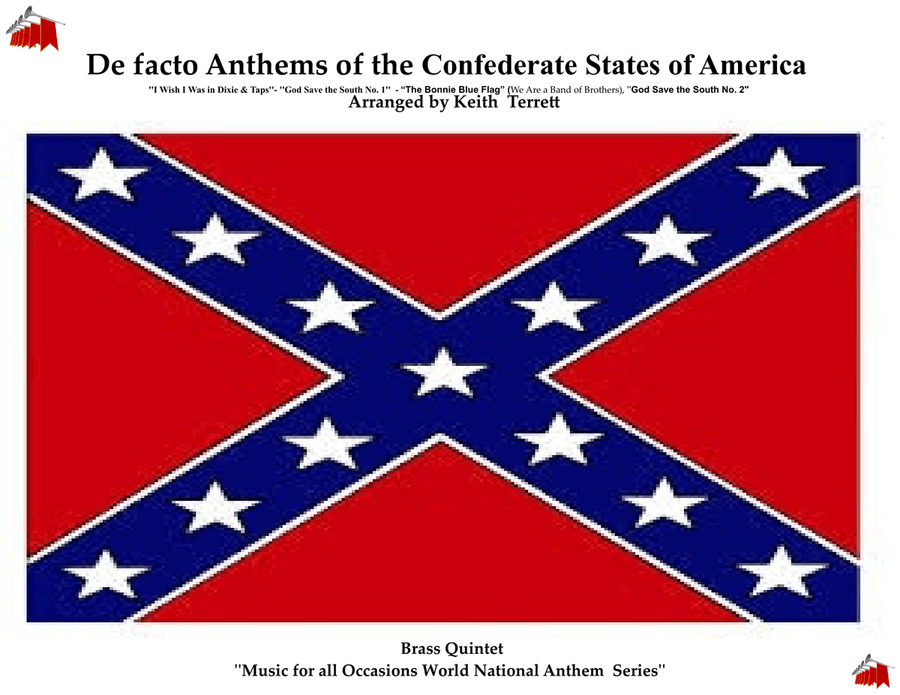Brass Quintet Horn,Trombone,Trumpet,Tuba - Level 3 - Digital Download SKU: A0.746742 Composed by Charles W.A Ellerbrook, Daniel Adams Butterfield, Daniel Decatur Dan Emmett ( 1815 â 1904), and Valentine Vousden. Arranged by Keith Terrett. Contemporary,Multicultural,Patriotic,Traditional,World. 39 pages. Keith Terrett #2941995. Published by Keith Terrett (A0.746742). De facto Anthems of the Confederate States of America ''I Wish I Was in Dixie & Taps''- ''God Save the South No. 1'' - The Bonnie Blue Flag, ''God Save the South No. 2'', arranged for Brass Quintet & Percussion.The Confederate States of America (also referred to as The Confederacy or simply The South) had, like the United States at the time, several patriotic songs in use which could have been considered anthems, like Dixie, The Bonnie Blue Flag, and God Save the South, none of which were officially declared (possibly because declaring an official anthem wasnât as important to a new nation then as it is now). God Save the South does have more of an anthemaic quality in the music and lyrics, and several publications of the song refer to it as a (or the) anthem, and was also the first song to be published in the Confederacy (which was subsequently published in at least nine editions).God Save the South was written by George H. Miles under the pseudonym Earnest Halphin, soon after the war started. Miles was a Marylander, a state that did not officially secede and join the confederacy, but, being a border state, had several citizens with sympathies for the south. An interesting thing to note about the song is the reference to George Washington (the first president of the United States) in the songâs fifth verse. Apparently, the author of the song meant to tie in Washingtonâs stance as a rebel against the British in the American revolution with the Southâs rebellion against the northern United States in the civil war.The music was written by C. W. A. Ellerbock, but another tune by C. T. De CÅniél was also popular at the time as well. (Ellerbockâs version, however, seems to be the original.)For more of my original music, great arrangements and all the national anthems of the world, check out my on-line stores:http://www.scoreexchange.com/profiles/keith_terrethttp://musicforalloccasions.org.ukhttp://www.sheetmusicplus.com/search?Ntt=keith+terrettNeed an anthem fast? They are ALL in my store!All my anthem arrangements are also available for Orchestra, Recorders, Saxophones, Wind, Brass and Flexible band. If you need an anthem urgently for an instrumentation not in my store, let me know via e-mail, and I will arrange it for you FOC if possible! keithterrett@gmail.comIf you perform this arrangement in public, make a recording or broadcast it through any media, please notify the PRS (UK), or ASCAP (USA), or SOCAN (Canada), or APRA (Australia) or KODA (Denmark) or the equivalent organisation in your own country, giving the name of the arranger as Keith Terrett.
